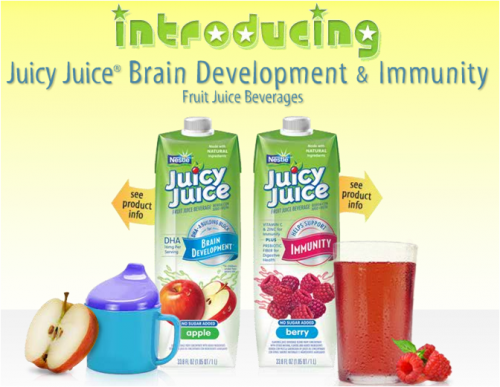I received a flurry of “you should have attended the meeting before you said anything” messages in response to my post yesterday about the FTC forum. They said the table that I posted did not have footnotes attached and I also had missed a key point about RACC (reference amounts commonly consumed): they are likely to be larger than current FDA serving sizes, meaning that the amounts of sugars and salt will have to be reduced to qualify.
Guilty as charged. RACC, as I mentioned yesterday, is a new term to me. This is because – how could anyone have missed this – I was unaware of the FDA’s Federal Register notice of April 4, 2005: “Serving sizes of products that can reasonably be consumed at one eating occasion; Updating of reference amounts customarily consumed; Approaches for recommending smaller portion sizes.”
This notice was the result of concerns about the serving sizes that had been established when the FDA issued final food labeling regulations in 1993. Then, the FDA established serving sizes for 129 product categories for adult foods and 11 categories for infant and toddler foods. These were derived from information about amounts commonly consumed reported in food consumption surveys from the late 1970s and late 1980s.
Either people ate a lot less back then or they were lying, or both. As my former doctoral student, now Dr. Lisa Young, discovered during her doctoral research, standard portion sizes – half a cup of ice cream or one 2 or 3-ounce slice of pizza, for example – are smaller (sometimes much smaller) than what people seem to be actually eating.
The FDA knew this. In 2003, it appointed an Obesity Working Group to advise the agency about several issues, among them whether to update the RACCs. The Group filed its report in 2004. With respect to serving size, it recommended:
* In the short-term, that FDA encourage manufacturers immediately to take advantage of the flexibility in current regulations on serving sizes that allows food packages to be labeled as a single-serving if the entire content of the package can reasonably be consumed at a single-eating occasion.
* In the long-term, that FDA develop two separate ANPRMs [Advance Notice of Proposed Rulemaking]. The first would solicit comment on whether to require additional columns within the nutrition label to list the quantitative amounts and %DV of the entire package on those products and package sizes that can reasonably be consumed at one eating occasion or, alternatively, declare the whole package as a single serving. This ANPRM would also solicit information on products and package sizes that can reasonably be consumed at one eating occasion. The second ANPRM would solicit comments on which, if any, RACCs of food categories appear to have changed the most over the past decade and therefore need to be updated.
On that basis, the FDA’s 2005 Federal Register notice asked for comments about whether:
- Consumers might “think that an increase in serving size on food labels means more of the food should be eaten.”
- Manufacturers might repackage products in larger sizes to avoid labeling a package as a single serving.
- Manufacturers might reduce the size of single-serving packages to reduce the apparent content of undesirable nutrients.
That was nearly five years ago. If anything further happened, I cannot find it in the Federal Register. Getting to these questions at last was apparently the point of the FTC forum.
I am told that panelists suggested raising the RACC serving size of kids’ cereals to 50 grams rather than the current 30 grams. If so, this would require cereal companies to reduce the amount of sugars in their products. Aha! That could explain why, as I discussed in a previous post, General Mills chose to put its full-page ads in newspapers promising to drop the sugars to single digits. General Mills must think changes in the RACC for cereals will require it to lower the sugars in order to be able to advertise to kids under the voluntary guidelines. Given how long the FDA’s processes take, it is understandable why General Mills failed to say when it would implement its promist. I am also told that the salt cut-point is open for comment.
For those of us who were not at the Forum and prefer to see such things in writing, how about releasing the footnotes to that chart and giving us some examples of the proposed changes to the RACC? Also, how about setting up a mechanism so interested people can file official comments on the proposals? Both would help people offer more informed comments on how the FDA should handle the serving size issues.
Update, December 20: Thanks to Ellen Fried for providing a link to some food industry opinion on what all this is about and another an in-the-know source that says the proposed standards are to be published in the Federal Register and opened for further public comment in January. The project is to be finished by July. Ellen points out that this procedure seems administratively complicated for standards that are not regulations; they are voluntary. Do the FTC and FDA really have to go through all this to issue what is simply guidance? Or is something else going on here that I’m not getting?



